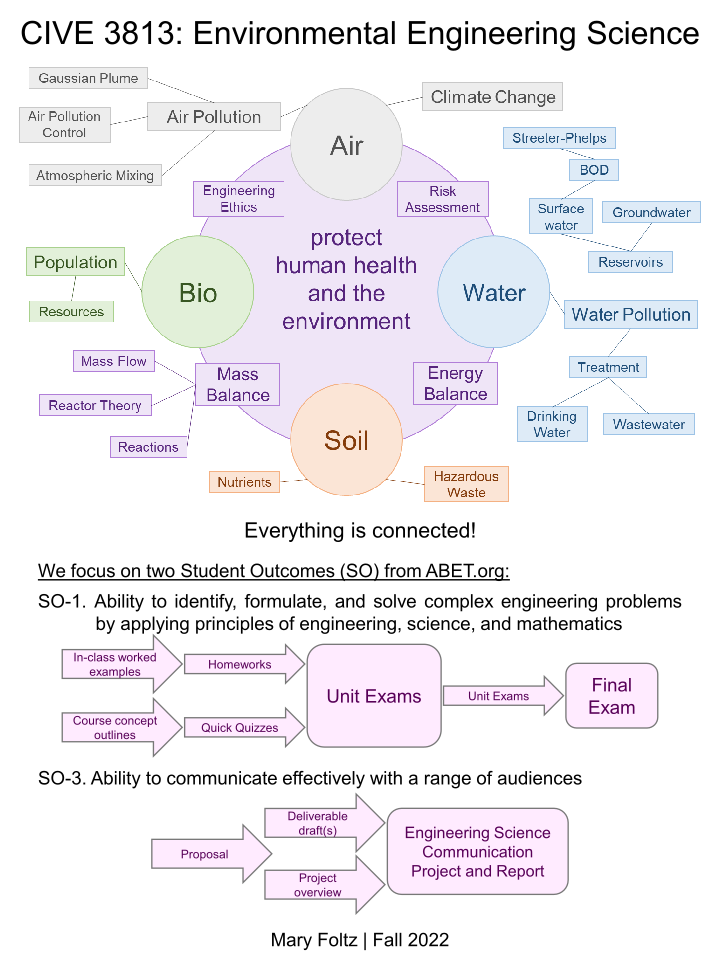teaching
Teaching Philosophy
I aim to foster an inclusive, safe learning environment where you develop the ability to solve complex, real-world problems. I believe that by providing a platform for you to develop these skills, you will be capable of addressing problems outside the context of classroom topics. To this end, I will provide opportunities for you to be an independent learner in a safe space where failure is expected, not penalized. Failure is a part of life, and it can be a source of strength and personal growth. Specifically, I will use low-stakes assignments and leverage feedback and revision to improve your confidence and understanding. I will also continually emphasize essential, universal skill development such as communication. In the end, I want you to become more confident in your ability to address problems and be able to communicate effectively as you work towards finding and implementing solutions.
CIVE 3813 Environmental Engineering Science
Environmental Engineering has become a rapidly growing field to best manage current environmental issues and decrease negative anthropogenic impacts on human and environmental health. This course focuses on the fundamentals of environmental chemistry, biogeochemical cycles, materials and energy balances, water quality, solid waste, air pollution, global climate change, and risk assessment. Students will learn critical topics in environmental engineering through lecture and discussion. The course will lay the foundation for further coursework in Environmental Engineering for students majoring in Civil and Environmental Engineering, and will provide a comprehensive overview of the field of Environmental Engineering and Sciences for students majoring in other programs.

CIVE 5010 Environmental Graduate Seminar
This course includes weekly seminars presented by a combination of students and professionals in fields related to environmental engineering. Over the academic year, graduate students will present one research seminar (either in fall or spring). Outside speakers from other universities, industry, and/or research labs will also give seminars in their areas of expertise. The overall objective of this course is to strengthen communication, critical thinking, and community within the environmental group.
CIVE 4883/5833 Introduction to Environmental Modeling
Intended as an introductory course for graduate and senior undergraduate students to the fundamentals of environmental modeling. The course reviews fundamental principles of mass balance, transport phenomena, and chemical kinetics. These principles will be applied to address fate and transport of pollutants through various systems based on the background and interest of enrolled students. Through the major modeling project of the semester, students will apply their understanding of models and model evaluation to a model of their choice. The course project will emphasize major concepts from the course and tie together major modeling principles. Students will learn how to learn about and interpret models they may encounter in their future careers, strengthening their communication and critical reading skills along the way.